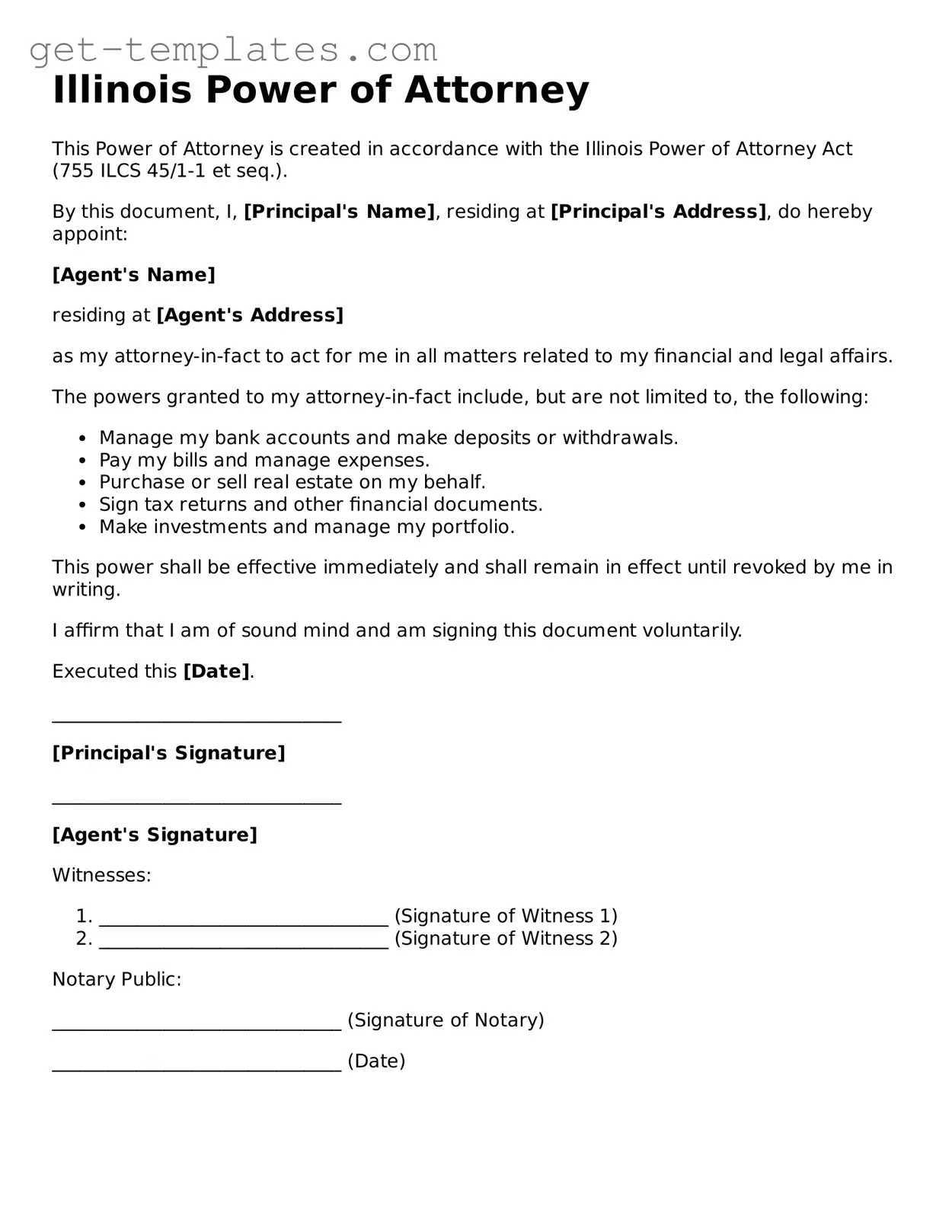Attorney-Approved Power of Attorney Document for Illinois
The Illinois Power of Attorney form is a legal document that allows an individual to appoint someone else to make decisions on their behalf, particularly in matters related to health care and financial affairs. This form is essential for ensuring that your wishes are respected when you are unable to communicate them yourself. Understanding the nuances of this document can empower individuals to make informed choices about their future.
Get Document Online

Attorney-Approved Power of Attorney Document for Illinois
Get Document Online
You’re halfway through — finish the form
Finish Power of Attorney online — edit, save, download made easy.
Get Document Online
or
⇓ PDF Form
